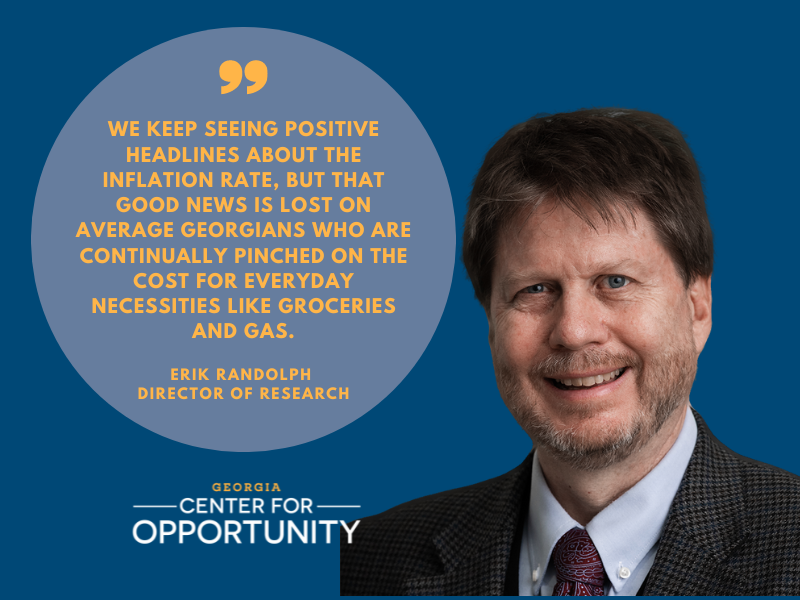
Navigating the current economic crisis: A guide to surviving the job market

Navigating the current economic crisis: A guide to surviving the job market
Key Points
- As of March 2023, the Bureau of Labor Statistics reported a nationwide unemployment rate of 3.5%.
- Well-known companies are conducting large-scale layoffs—in some cases, laying off tens of thousands of employees.
- The BETTER WORK program can help you take the next steps in your career to secure a better job, whether you’ve been laid off or you’re simply looking to move to the next level.
The COVID-19 pandemic has had a profound impact on the global economy, leading towidespread job losses and an uncertain future for many workers. As we continue tonavigate the economic crisis, it is important to understand the current state of the jobmarket in Georgia and strategies for finding and securing employment.
Times may be turbulent, but with the right mix of strategy, action, and support, it’s possible to find and keep gainful employment.
The state of the job market
The current economic crisis has impacted the job market in a number of ways, causing several industries to contract. Layoffs have been widespread across multiple markets. As of March 2023, the Bureau of Labor Statistics reported a nationwide unemployment rate of 3.5%. But with many companies announcing widespread layoffs, that number could potentially increase in the coming months.
Since January 2023, the tech industry has been hit hard by layoffs in a number of companies. The impact extended to household-name brands such as Meta, Google, Microsoft, Zoom, Netflix, Salesforce, and many others. Beyond tech, other well-known companies are conducting large-scale layoffs—in some cases, laying off tens of thousands of employees. Disney just announced 7,000 coming layoffs, while Amazon is cutting 9,000 more jobs in addition to the 18,000 jobs it cut in early 2023. Companies such as Goldman Sachs, H&M, Walmart, McDonald’s, Tyson Foods, NPR, and many others are also letting staffers go, in some cases by the thousands.
Ultimately, white-collar workers are most likely to face layoffs as the impending recession looms. Most blue-collar jobs are still hiring, though, so workers in those sectors may fare better.
Strategies for finding employment
Having a support system to come alongside you and help with your job search is invaluable. The BETTER WORK program can help you take the next steps in your career to secure a better job, whether you’ve been laid off or you’re simply looking to move to the next level. If you’re in the Gwinnett or Columbus areas, we’re ready to help! Learn more about BETTER WORK here.
Regardless of whether you face layoffs or not, it’s important to get prepared for the possibility of a job hunt. It’s far better to update your resume and refresh your network connections now, rather than waiting until it’s too late. Here are a few things you can do to boost your chances for landing new employment, should the need arise.
1. Assess your skills and experience: What skills and experience have you acquired over the years? What about transferable skills? Make an exhaustive list of your professional experience and transferable skills up to this point. After that, consider listing out what skills you might like to acquire in the future.
2. Identify in-demand jobs and industries: If you need to launch a job search, you’ll want to start with industries that are actively hiring. You can research specific industries on the Bureau of Labor Statistics website, but it’s also useful to check the pulse of the market by running searches on Google and staying up to speed on LinkedIn.
3. Network and leverage personal connections: It’s always important to meet new professional connections and keep in touch with existing ones, but now it’s more important than ever. Reconnect with professional connections and leverage your network to find new opportunities you might not come across otherwise. If you don’t yet have an account on LinkedIn, go ahead and get set up there, too. It’s a great place to showcase your skills, follow companies you’re interested in, apply for jobs, and keep in touch with professional peers.
4. Utilize online job boards and resources: There are plenty of fantastic resources online that you can use to find and apply for great jobs. Sites like CareerBuilder, Monster, Remote.co, Indeed, and FlexJobs are useful for finding strong opportunities. You can also apply directly to jobs you’re interested in through company websites.
“Having a support system to come alongside you and help with your job search is invaluable.”
“Having a support system to come alongside you and help with your job search is invaluable.”
Moving forward in the job market
Regardless of whether you’re currently job searching or preparing to do so in the future, it’s important to understand how to move forward in the job market. It’s also important to note that, according to Atta Tarki’s report in the Harvard Business Review, it’s “still a workers’ labor market.” That means, for many job seekers, the power is still in your hands.
Don’t lose heart if you find yourself searching for new work in the near future. Embrace new opportunities and industries, cultivate and identify transferable skills, and get ready to pivot quickly if needed. Stay flexible and adaptable to changing market conditions, and plan for the future. When you remain open to new possibilities, you’ll have that much more control over your career trajectory.







